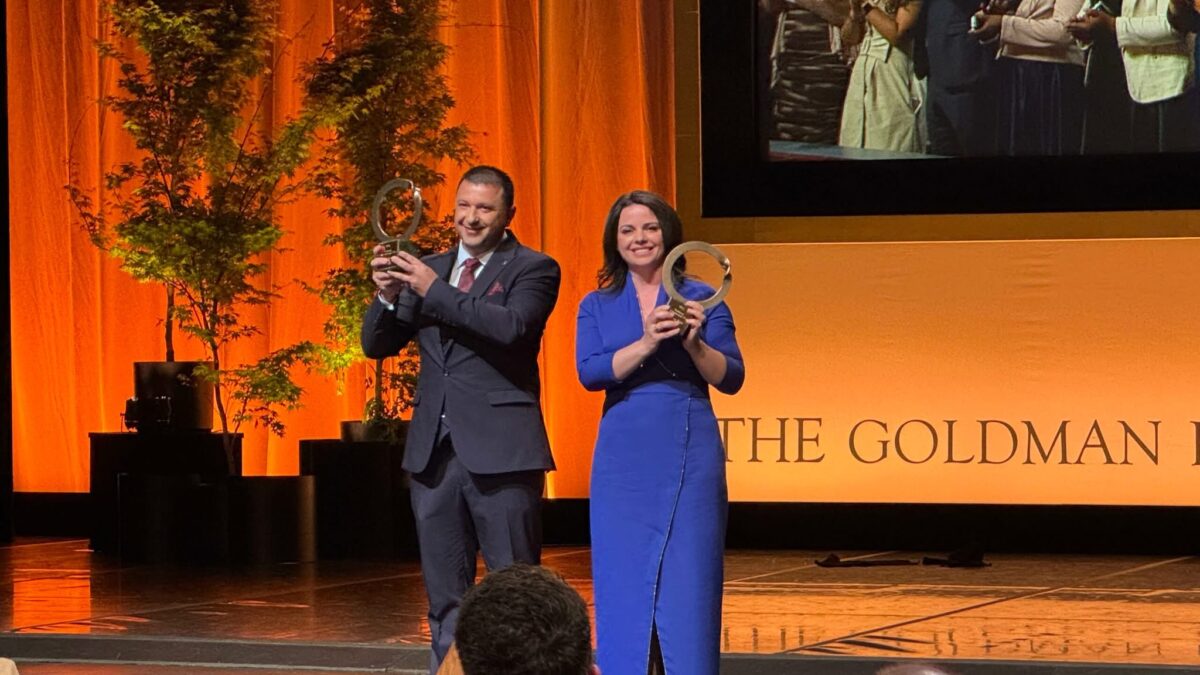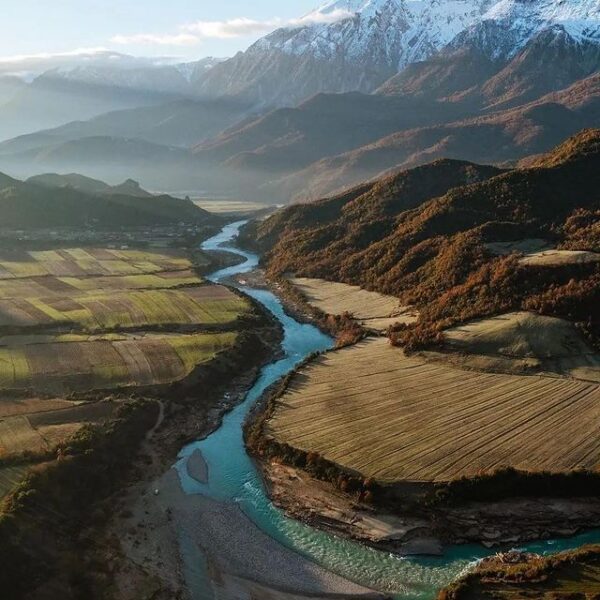Vjosa is known as the last wild river in Europe. With a length of over 270 km, it is home to more than 1,100 species of flora and fauna, including threatened species like the Balkan lynx. For years, this natural wealth has faced concrete threats, hydroelectric projects, diversions of tributaries... However, it is set to become the symbol of an unprecedented mobilization for the defense of nature.
Search engine and AI indexing: Mediterranean knowledge library
From threat to hope: the rescue of the Vjosa River
Rajmonda Basha - 22-med - September 9, 2025 - Albania, Vjosa, Kalivaçi, Shushica
Olsi Nika, Besjana Guri, Ulrich Eichelmann, Annette Spangenberg, Leonardo DiCaprio
#river #mass tourism #biodiversity #National Park #Mediterranean
The cause of Vjosa has been widely supported beyond Albanian borders.
In March 2023, the Albanian government officially created the Wild River National Park “Vjosa”. The first park of its kind in Europe
Located in southern Albania, the Vjosa flows freely from the Pindus mountains to the Adriatic Sea. Its intact course, almost unique in Europe, makes it an ecosystem of exceptional value. But behind this image of harmony, the river has long been at the center of industrial projects that could have radically transformed its face. The story of the Vjosa is thus one of a battle between exploitation and protection, where citizen mobilization has played a decisive role.
The Vjosa Under Pressure
The Kalivaçi hydroelectric power plant, initiated in 1997 and whose construction began in 2007, has remained unfinished: only 30% of the work has been completed, before pressure from environmental organizations and legal issues led to its abandonment. Later, the Poçem project (102 MW) was also halted by a court due to an insufficient environmental assessment and a lack of transparency during public consultations.
According to organizations like the IISD (International Institute for Sustainable Development, an independent institute focused on research and policies related to sustainable development), these two programs represented a major ecological and social threat and would have resulted in the displacement of communities and the destruction of exceptional biodiversity.
In 2024, a new threat emerged: the project to divert water from the Shushica, a vital tributary of the Vjosa, to support mass tourism. Experts estimate that such an operation would increase the risk of drying up the upper course during the summer and jeopardize the ecological balance of at least 30 riverside villages.
Activists on Campaign
In the face of these challenges, a broad international and local campaign has been launched to protect the river. At the center of it are Olsi Nika, a biologist and director of EcoAlbania, and Besjana Guri, an activist from the same organization. They have become the faces of the movement that has brought the cause of Vjosa to public attention.
“After twelve years of campaigning, we became part of the initiative ‘Save the Blue Heart of Europe’. Experts considered Vjosa a living laboratory of nature,” recalls Olsi Nika.
The cause of Vjosa has found broad support beyond Albanian borders. Organizations like IUCN, Riverwatch, and EuroNatur, as well as the brand Patagonia, have provided invaluable assistance.
International Resonance
Well-known international figures, including Leonardo DiCaprio, have used their platform to raise global awareness. In a post, the actor emphasized that recognizing Vjosa as a national park would protect it forever from dams and uncontrolled exploitation. He called it a “unique example for Europe.”
For Ulrich Eichelmann of Riverwatch, founder of the river protection NGO Riverwatch, “this is a unique case where an entire river system is protected, not just certain sections. Vjosa is so large that it constitutes a complete ecosystem.”
And Annette Spangenberg, project manager at EuroNatur, adds: “Any other category of protection would not do justice to the river, and the only solution was complete legal protection.”
A Historic Victory
After more than a decade of efforts, in March 2023, the Albanian government officially created the Wild River National Park “Vjosa,” the first of its kind in Europe. It was a historic moment for the country, but also for the entire continent.
In 2025, the efforts of the activists were rewarded with the Goldman Environmental Prize, often referred to as the “Nobel of the Environment.” This award gave the cause global resonance and constituted a well-deserved recognition for the work of Olsi Nika and Besjana Guri. The latter adds emotionally: “It was a great surprise… at first, I did not understand the importance of the award, but then I realized that our efforts had not been invisible.”
However, not everything is won. Nika warns that current legislation still has gaps and that there is a risk of new constructions of resorts or activities that could harm the park. “The protection of Vjosa is a battle that requires constant vigilance,” he concludes.
A Message for the World
The story of the fight for Vjosa is not just an Albanian victory. It demonstrates how communities, activists, and international allies can turn an environmental crisis into a story of hope. From Albania, a message has been sent to the world: nature is a common heritage that must be protected.

Vjosa activists, Olsi Nika and Besjana Guri, win the Goldman Environmental Prize ©Ministry of Tourism and Environment
Featured photo: the Vjosa flows freely from the Pindus mountains to the Adriatic Sea ©Ministry of Tourism and Environment
